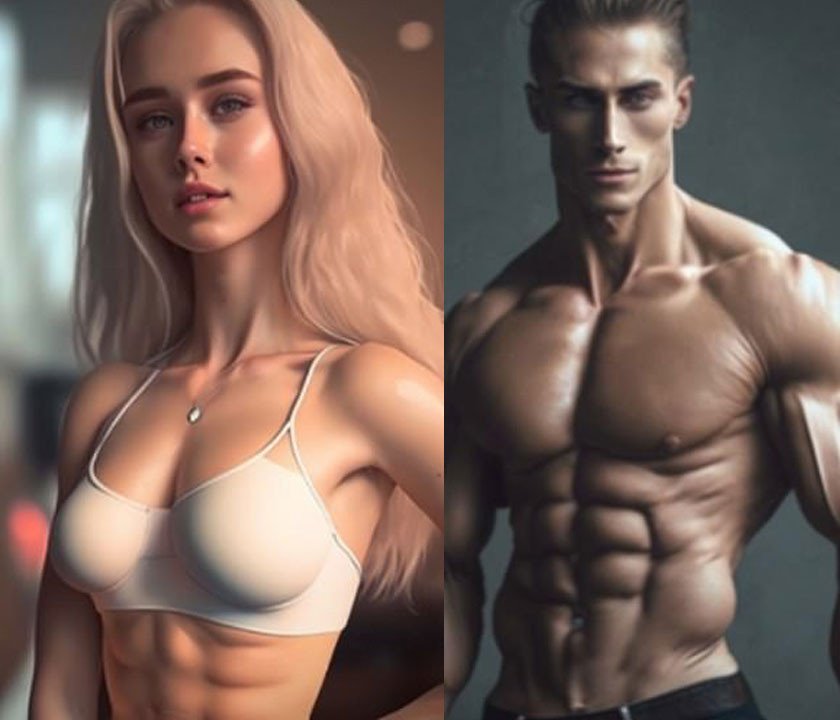Blonde women and tall brunette men are seen as characteristics of ideal people, according to AI tools trained with billions of photos showing “beautiful people” on social media sites.
The Bulimia Project, an eating disorder awareness group, asked AI to produce the “perfect” male and female bodies, according to the top social media attention.
The organization’s researchers found that the most desirable women had blonde hair, tanned skin, brown eyes, and slim bodies, while the “perfect” man had dark, flaming eyes, sharp cheekbones, and defined muscles.
Pointing to technology’s implicit biases, many of the AI results seemed to exaggerately prioritize outdated beauty standards—white but tanned, slim but muscular, and intensely blonde.
How did they find the “perfect” person?
The Bulimia Project tested AI image generators such as Dall-E 2, Stable Diffusion, and Midjourney to find out what the programs’ idea of the “perfect” body looked like in men and women. The artificial intelligence worked by scanning the internet for existing images and designing a new image based on those results. However, it is not entirely clear how they arrived at these results, as they did not show their learning processes. But interactions with photos uploaded to social media, including likes and comments, are considered to be taken into account, as well as internet searches.
 Two of the “perfect” human images created by artificial intelligence.
Two of the “perfect” human images created by artificial intelligence.About 40 percent of the photos showing “perfect” women were blonde, 30 percent had brown eyes, and more than half had tanned skin.
Almost 70 percent of the “perfect” men had brown hair and 23 percent had brown eyes. Similar to women, the vast majority of men were tanned, and nearly half had beards.
Many were well tanned, and images showed many of them caricatured features such as plump lips, wrinkle-free and pore-free skin, and perfect ski slope noses, incorporating features often coveted and often imitated using plastic surgery and fillers.
Also, the vast majority of images were white, hinting at AI’s educational bias.
Another phenomenon supported by some of the images in this study was that the standards of beauty have now morphed into bodies that are almost impossible to reach and absolutely unrealistic. So much so that some of these images had combinations of features that cannot be achieved without using photo editing apps.
The researchers highlighted the increasing rates of depression and suicide, especially among young people, and emphasized that these unrealistic “standards” adopted by the fashion industry can be dangerous.